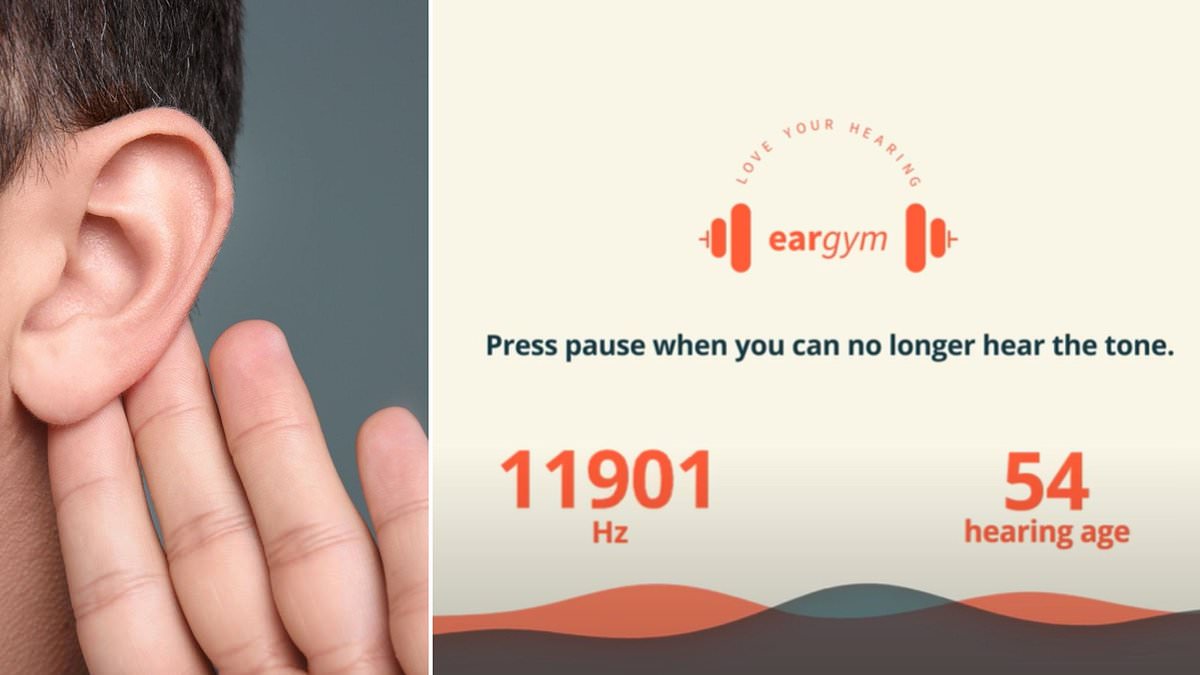Hearing problems are often treated as an unfortunate but inevitable inconvenience of getting older. For most, it’s a gradual process that people are initially unaware of and take years to address.
Even among those who know their hearing is gradually getting worse, many will avoid addressing the problem out of fear, according to Eargym founder Amanda Philpott.
“There’s a perception that the only route that we have to manage our hearing loss is hearing aids and they are very closely associated with frailty,” Philpott said. “We’re quite frightened of looking old and frail.”
Philpott said this means the average age for meaningful hearing care intervention is 75, “by which point…you’ve spent a long time with your brain forgetting a range of sounds and how to process them”.
Meet Eargym
Founded in 2020, Eargym is an app designed to encourage people, young and old, to not neglect their auditory health.
Hearing deterioration can restrict career opportunities, particularly for those late in life, and is closely linked with cognitive decline and dementia.
The app aims to combat this with hearing tests and exercises aimed at improving auditory function and flagging areas of concern.
According to Philpott, cases of auditory deterioration often come as a result of neglect early in life, particularly due to the popularity of headphones.
Research conducted by the Eargym team found that in a group of 1,000 people aged 16 to 35, a quarter showed early signs of hearing loss.
“If we are kicking off hearing loss at a much earlier generation, then you can infer that we’re bringing forward the risk of cognitive decline for that generation. And we really need to do something about it.”
The Eargym founder said that even the “World Health Organisation is flagging up this massive hearing crisis in a younger generation”.
The startup’s “immersive auditory games” include finding target sounds against ambient backgrounds.
The exercises are based on lab research, with the company currently seeking medical device accreditation. According to Philpott, the scientific research into these tests can improve already deteriorated hearing by as much as 25%.
In cases where user hearing cannot benefit further from training, the app provides information on the next steps, including encouraging doctor visits.
“When people are frightened of pursuing extra care and don’t know what questions to ask, our in-house audiologists have created materials that we offer to you.”
The aim is, through industry partnerships, to deploy the app as a staff benefit. Philpott said this will work to reduce the risk of auditory damage through lack of awareness by putting the solutions directly to people.
Before founding Eargym, Philpott spent 28 years as an executive in the NHS. She held a number of roles, including hospital director and commissioning chief executive in London and the South East.
“I realised as I was doing population health commissioning, that I’m really motivated by the prevention of ill health, really motivated by enabling people to stay well before they need secondary care,” she says.
In 2019, Philpott left the NHS to join a venture capital accelerator. This eventually led to her becoming a first-time founder in her fifties.
“I used to be very comfortable financially. [Founding a startup is] a huge financial risk, so, you have to be prepared for that. But at the same time, it’s so exciting and so energising.”
Early Impact is a monthly UKTN series profiling early-stage startups that are solving societal problems.
The post Early Impact: How Eargym is helping young and old protect their hearing appeared first on UKTN.


